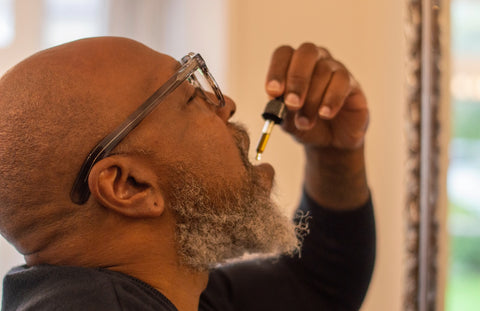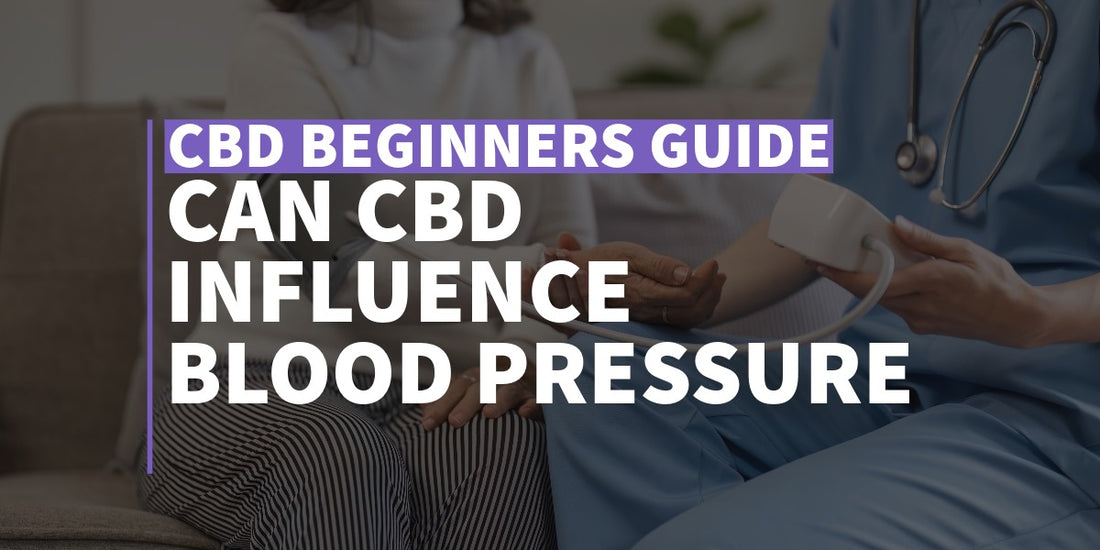Welcome to our cozy corner of the internet where we explore the wonders of natural wellness and the potential benefits that come with it. Today, we're focusing on CBD, a topic that's sparked interest and curiosity worldwide. With its rising popularity, many of us are keen to understand how this natural compound might influence our health, particularly in the realm of blood pressure levels.
Whether you're well-versed in the world of CBD or just beginning to peek into its possibilities, this post aims to shed light on the intriguing connection between CBD and blood pressure.
High blood pressure, also known as hypertension, is a silent killer that affects millions worldwide. With the rise of natural remedies, Cannabidiol (CBD) has emerged as a potential solution for regulating blood pressure rates. But how does CBD oil play a role in managing hypertension? Let's take a look into the potential benefits of CBD oil for high blood pressure.
Understanding High Blood Pressure
Before we delve into the potential benefits of CBD, it's essential to understand what high blood pressure is. Hypertension occurs when the force of blood against the arterial walls is consistently too high. There are two main types:
- Primary hypertension: This form has no identifiable cause and tends to develop gradually over time.
- Secondary hypertension: Caused by an underlying condition, it appears suddenly and causes higher blood pressure than primary hypertension.
"High blood pressure is often linked to factors like genetics, age, or a high sodium intake. But beyond these, anxiety, poor sleep quality, and certain medications can also play a role," says Sunny Intwala, M.D. of Nuvance Health.

Enter CBD: A Natural Remedy
Cannabidiol, or CBD, is a compound found in the cannabis plant. Unlike THC, CBD doesn't have psychoactive properties, making it an attractive option for therapeutic use. The World Health Organization (WHO) has recognized CBD's potential in treating a range of health conditions, including hypertension.
How CBD Works
The human body has an endocannabinoid system (ECS), a complex cell-signaling system that plays a role in regulating a range of functions and processes, including blood pressure. The ECS comprises endocannabinoids and two main receptors: CB1 and CB2 receptors. CBD interacts with these receptors, promoting homeostasis, a state of balance in the body.
Furthermore, CBD's anti-inflammatory properties and antioxidant properties can help reduce inflammation in the arterial walls, a significant contributor to high blood pressure.
The Entourage Effect
When considering CBD for hypertension, it's essential to understand the difference between full-spectrum CBD and other types. Full-spectrum CBD contains all the compounds found in the cannabis plant, including THC (in minimal amounts). This combination creates the "entourage effect," where the compounds work together, enhancing the therapeutic effects of each.

Lifestyle Changes for High Blood Pressure
While CBD offers promising results, it's crucial to approach hypertension holistically. Incorporating heart-healthy foods, exercising regularly, and reducing sodium intake can significantly impact blood pressure rates. Additionally, managing stress through practices like meditation can further enhance the benefits of CBD.
Study Concluded on CBD for High Blood Pressure
CBD works by interacting with the body's endocannabinoid system, which helps to regulate blood pressure. In one study, healthy volunteers were given either 600 mg of CBD or a placebo.
The participants who received CBD had significantly lower blood pressure than those who received the placebo. In another study, patients with hypertension were given either CBD or a placebo. After taking CBD for four weeks, the patients' blood pressure was significantly lower than it had been at the start of the study. These studies suggest that CBD may be a helpful treatment for high blood pressure.
Percentage of people with high blood pressure?
According to the UK Blood Pressure around one in three adults (just over 35%) in the UK has high blood pressure. Taking CBD daily can help to keep your heart healthy and reduce the risk of cardiovascular disease.
Furthermore, According to the NHS, they back up these facts with evidence of one in three adults in the UK having high blood pressure, although many will not be aware of it. The only way to know for sure if you have high blood pressure is to have your blood pressure checked by a healthcare professional.

Hemp-derived vs. Cannabis-derived CBD
The primary distinction in the world of CBD is its source:
- Hemp-derived CBD: Extracted from industrial hemp, this type contains 0.3% THC or less. It's legal in many parts of the world and is known for its therapeutic benefits without the "high."
- Cannabis-derived CBD: Extracted from the marijuana plant, it might contain higher THC levels, making it psychoactive in nature.
"It's crucial to understand the source of your CBD. While both types offer therapeutic benefits, the THC content can influence the product's legality and its effects on the body," suggests an expert from Crush Organics.
Vasodilatory Effects of CBD
One of the standout benefits of CBD in the context of hypertension is its vasodilatory effects. By relaxing and widening blood vessels, CBD can improve blood flow, thereby reducing the strain on the heart and decreasing blood pressure. This property is particularly beneficial for those with Grade 1 hypertension, where blood pressure is slightly above the normal range.
Choosing Quality: What to Look For
With the CBD market booming, it's essential to ensure you're getting a high-quality product. Here are some pointers:
- Independent third-party lab testing: Always opt for products that provide lab results, ensuring the product's purity and potency.
- Extraction method: The CO2 extraction method is considered the gold standard as it preserves the purity of CBD.
- THC content: Ensure the THC content aligns with legal regulations in your area.
The Role of the Endocannabinoid System
The endocannabinoid system (ECS) plays a pivotal role in maintaining physiological balance, including regulating blood pressure. CBD's interaction with the ECS, particularly the CB1 and CB2 receptors, can influence several factors associated with hypertension, including heart rate variability (HRV)and arterial health.
A Holistic Approach: Beyond CBD
While CBD offers a natural avenue for managing hypertension, it's essential to view it as part of a broader strategy. Regular exercise, a balanced diet, and stress management techniques can amplify CBD's benefits. Medications like angiotensin-converting enzyme inhibitors and calcium channel blockers can also play a role, so always consult with a healthcare professional.
Potential Side Effects of CBD
While CBD is generally well-tolerated, like any substance, it's not devoid of potential side effects when taking CBD for blood pressure. Some individuals might experience:
- Dry mouth
- Dizziness
- Changes in appetite
- Diarrhea
- Fatigue
Interactions with Other Medications - CBD & Blood Pressure
CBD can interact with certain medications, especially those that come with a "grapefruit warning." Both grapefruit and CBD interfere with cytochromes P450, a group of enzymes essential for drug metabolism.
If you're on medications like angiotensin II receptor blockers or angiotensin-converting enzyme inhibitors, it's crucial to consult with a healthcare professional before introducing CBD into your regimen.
Best Practices for CBD Consumption
- Consistency is Key: For optimal results, it's recommended to take CBD consistently, allowing the body to build a level of CBD over time.
- Choose the Right Product: From tinctures to edibles, the market is flooded with CBD products. For hypertension, CBD oil is often recommended for its direct and efficient absorption.
- Monitor Your Dosage: Start with a low dose and gradually increase until you find your "sweet spot."
- Stay Informed: The world of CBD is rapidly evolving. Stay updated with the latest research and findings.
In Retrospect
The narrative surrounding CBD and its potential benefits for high blood pressure is both exciting and promising. As we navigate this evolving landscape, it's essential to approach it with an open mind, armed with knowledge and a commitment to holistic well-being. With the right strategies in place, a balanced life is well within reach.

